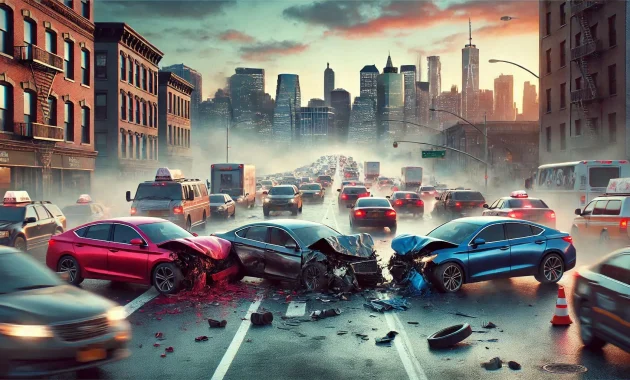Why Health Insurance Is Crucial After a Car Accident in the US

Car accidents are sudden, often leaving victims in physical pain and financial distress. In the US, where healthcare costs are notoriously high, having health insurance isn’t just a safety net—it can be a lifesaver. This article explores why health insurance is vital after a car accident, how it complements car insurance, and actionable steps you can take to ensure you’re protected.
Understanding the Role of Health Insurance in Car Accidents
Health Insurance vs. Car Insurance: What’s the Difference?
While car insurance often includes medical payment coverage, it doesn’t fully replace health insurance. Car insurance may pay for immediate accident-related expenses, but health insurance ensures long-term care, including surgeries, rehabilitation, and therapy.
| Coverage Type | Car Insurance | Health Insurance |
|---|---|---|
| Primary Purpose | Protects against car damage and liability | Covers medical and healthcare expenses |
| Scope of Coverage | Limited to accident-related injuries | Comprehensive healthcare for all conditions |
| Examples of Benefits | Ambulance, ER visits, initial treatment | Surgeries, rehab, follow-ups, prescriptions |
Why Health Insurance Matters Post-Accident
1. High Medical Costs in the US
Did you know the average cost of an ER visit in the US is over $1,300? Add ambulance fees, diagnostics, and follow-ups, and the bill can easily exceed $10,000. Without health insurance, even minor injuries could lead to crippling debt.
“Healthcare bills are the number one cause of bankruptcy in the United States.” – CNBC
2. Covers Long-Term Treatment Needs
Car accidents often result in long-term injuries such as:
- Spinal damage
- Chronic pain
- Traumatic brain injuries
Health insurance provides access to specialist care, including physical therapy and mental health support, ensuring victims recover both physically and emotionally.
3. PIP Coverage May Be Limited
Personal Injury Protection (PIP) in car insurance is essential but capped. In most states, PIP only covers up to $10,000 in medical expenses. Health insurance bridges the gap, providing continued coverage once PIP limits are exhausted.
4. Access to Mental Health Services
A car accident isn’t just a physical trauma—it’s an emotional one too. Victims may suffer from:
- Post-traumatic stress disorder (PTSD)
- Anxiety
- Depression
Health insurance ensures access to therapy and counseling, which are often excluded from car insurance policies.
How to Maximize Health Insurance Benefits Post-Accident
5. File Claims Promptly
Notify your health insurance provider immediately after the accident. Most policies have deadlines for submitting claims, and delays could result in out-of-pocket expenses.
6. Understand Your Network
Ensure you visit in-network doctors to avoid unexpected costs. Many health plans impose higher charges for out-of-network care.
7. Leverage Secondary Coverage
If you have both car and health insurance, know which acts as primary payer. Typically:
- Car insurance pays first for accident-related injuries.
- Health insurance kicks in for extended care.
8. Keep Detailed Records
Maintain documentation, including:
- Medical bills
- Insurance correspondence
- Doctor’s notes
These records are crucial for appealing denied claims or proving injury severity during lawsuits.
Case Study: The Consequences of Lacking Health Insurance
Consider John, a 32-year-old delivery driver who sustained a fractured leg in a car accident. Without health insurance, John relied solely on PIP, which covered $8,000 of his $25,000 medical bill. The remaining amount left him in financial turmoil, forcing him to take out loans and delay his recovery.
What About Medicaid and Medicare?
9. Medicaid for Low-Income Individuals
If you qualify for Medicaid, it can act as a safety net, covering expenses not paid by car insurance.
10. Medicare for Seniors
For those over 65, Medicare ensures affordable access to:
- Hospital stays
- Surgeries
- Long-term therapies
However, out-of-pocket costs may still apply, so supplemental insurance is advisable.
Health Insurance Myths After a Car Accident
11. Myth: Health Insurance Doesn’t Cover Accidents
Fact: Health insurance does cover injuries sustained in car accidents, though deductibles and co-pays still apply.
12. Myth: You Don’t Need Both Health and Car Insurance
Fact: Both insurances complement each other. Without one, you risk significant gaps in coverage.
The Financial Safety Net of Health Insurance
13. Avoiding Medical Debt
According to the Kaiser Family Foundation, over 40% of Americans struggle with medical debt. Health insurance reduces the financial strain, ensuring you’re not one accident away from bankruptcy.
14. Legal Protections
Health insurance policies often have agreements with medical providers, ensuring you’re charged negotiated rates, which are significantly lower than those billed to uninsured individuals.
The Human Side: A Personal Testimonial
Lisa, a school teacher, shares:
“After my accident, my health insurance not only covered my surgeries but also paid for my physical therapy. Without it, I couldn’t have afforded the care I needed to walk again.”
Her story highlights how health insurance provides more than financial relief—it ensures a pathway to recovery.
Conclusion
Health insurance is more than a luxury—it’s an essential lifeline after a car accident in the US. From covering sky-high medical bills to providing long-term care, it ensures victims recover without financial ruin. By combining health and car insurance effectively, you can navigate the aftermath of accidents with confidence and security.
FAQs
1. Does health insurance cover car accident injuries?
Yes, health insurance typically covers injuries sustained in a car accident, including surgeries, follow-ups, and rehabilitation.
2. What happens if I don’t have health insurance after a car accident?
Without health insurance, you’ll bear the full cost of medical bills, which can lead to significant financial debt.
3. Can I use both car and health insurance for the same accident?
Yes, car insurance usually pays first, and health insurance covers remaining expenses.
4. Does Medicaid cover car accident-related injuries?
Yes, Medicaid covers accident-related injuries, but coverage limits and restrictions may apply.
5. How do I file a health insurance claim after an accident?
Contact your insurance provider immediately, keep detailed records, and ensure your medical provider submits claims promptly






